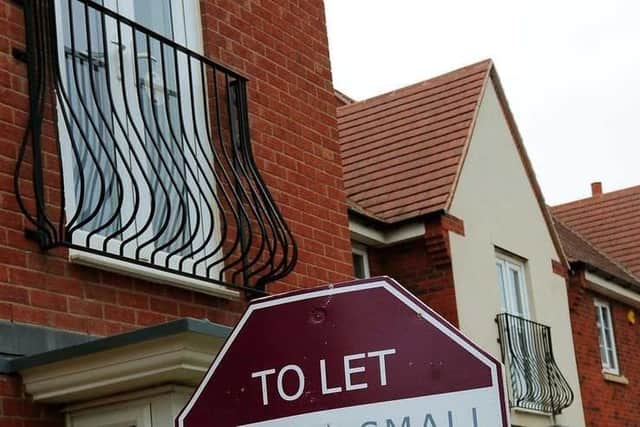Wigan housing benefit tenants forced to find extra £105 per month to meet rising rents
and live on Freeview channel 276
Local Housing Allowance is a housing benefit payment made to those eligible for Universal Credit and is meant to cover the cheapest 30 per cent of rooms in a shared house on the private rental market.
Figures from youth homelessness charity Centrepoint show just one in 13 local authorities in England provide sufficient housing benefit for people living in the area.
Advertisement
Hide AdAdvertisement
Hide AdThe charity said without the Government raising housing benefit rates, people face homelessness amid soaring rental prices.


The figures show people renting from private landlords who are eligible for housing benefits in Wigan will receive £263 per month from the local housing allowance this year.
The median rent for a room in a shared house in Wigan is £400, while the cheapest 25 per cent of rents cost up to £368.
Housing allowance would cover just 71 per cent of that price, leaving people needing to find an extra £105 per month to put a roof over their heads.
Advertisement
Hide AdAdvertisement
Hide AdAcross the country, just one in 13 local authorities provide sufficient housing benefit to afford the cheapest quarter of rental properties, while the average shortfall is more than £90 per month.
Centrepoint said people on low incomes renting homes are competing with one another, paying soaring costs and offering lump sums to secure properties.
Alicia Walker, head of policy, research and campaigns at Centrepoint, said: "This is particularly worrying for those vulnerable young people who rely on Universal Credit to keep a roof over their heads.
"The fact is that if you’re on a low or fixed income then no amount of clever budgeting is going to help you find an additional £100 or more to cover the rent.
Advertisement
Hide AdAdvertisement
Hide Ad"The Government has asked low-income renters to defy the gravity of this crisis and somehow find the money to cover the spiralling costs.
"That simply isn’t possible for most young households and, without the Government increasing rates immediately, many of them could face losing their home."
